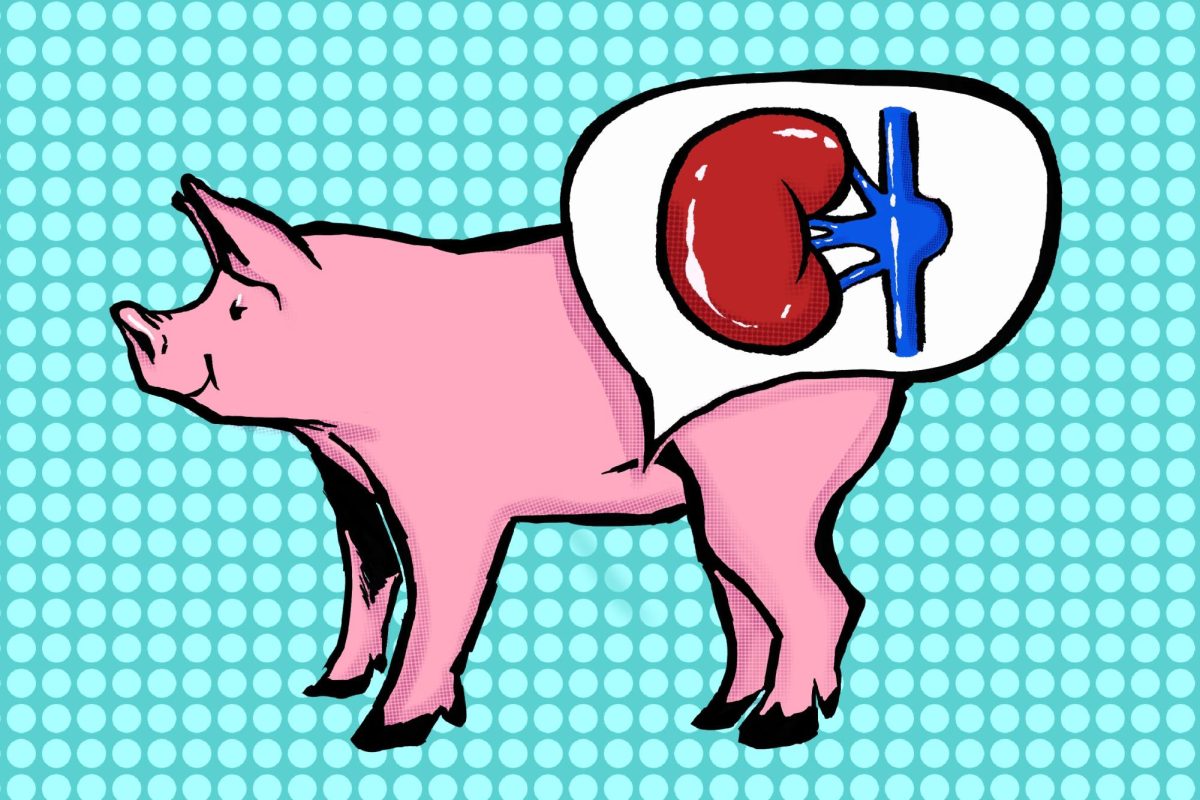An NYU Langone Health patient lived with a pig kidney for 130 days before she experienced an organ rejection. On April 4, the patient underwent surgery at the hospital center to remove the pig kidney, ending the longest stretch that a person has ever survived with a genetically engineered animal organ.
The 53-year-old patient Towana Looney became the third person to ever get a pig kidney transplant after Robert Montgomery, the director of the NYU Langone Transplant Institute, performed the procedure on Nov. 25. Looney had undergone unsuccessful dialysis treatment for eight years and her body did not respond to a human kidney transplant, leading NYU Langone surgeons to use xenotransplantation — performing transplants from one species to another.
Montgomery said that after Looney lowered her dosage of immunosuppression medication to help treat an unrelated infection, her immune system began attacking the pig kidney in her body. However, he said that the direct cause of the transplant rejection is still being “actively investigated.” Five days after her surgery, Looney was released from the hospital and returned to her home state, Alabama.
“The decision was made by Ms. Looney and her doctors that the safest intervention would be to remove the kidney and return to dialysis rather than giving additional immunosuppression,” Montgomery wrote in a statement. “This preserves future possibilities for transplantation for her as knowledge and innovations progress.”
There is a limited number of patients who have undergone a transplant surgery with a genetically engineered animal organ. Recently, four patients — two with genetically modified pig kidneys and two with pig hearts — have died from complications. In January, 66-year-old Tim Andrews, who was diagnosed with end-stage kidney disease, received a genetically modified pig kidney from Massachusetts General Hospital and has since recovered smoothly.
Over 105,000 people in the United States are on the waitlist for an organ, with over 90,000 waiting for a kidney. On average, 17 people die every day waiting for a transplant. Scientists are testing xenotransplantation to assess its validity as a long-term option for those who are unable to receive a human organ transplant because of the long wait times.
“Though the outcome is not what anyone wanted, I know a lot was learned from my 130 days with a pig kidney — and that this can help and inspire many others in their journey to overcome kidney disease,” Looney said in a statement. “I remain thankful to all of the doctors and researchers at NYU Langone for all they are doing.”
Contact Isabella D’Erasmo at [email protected].























































































































































